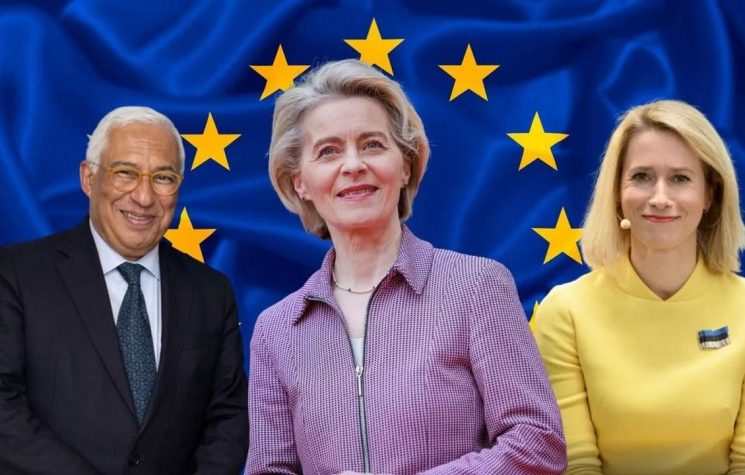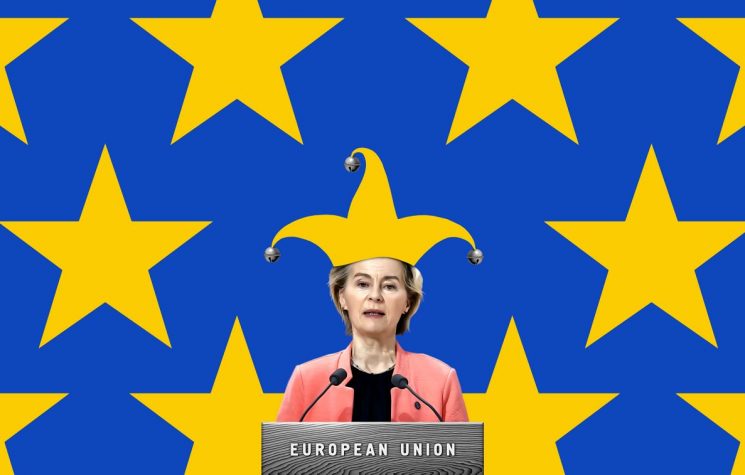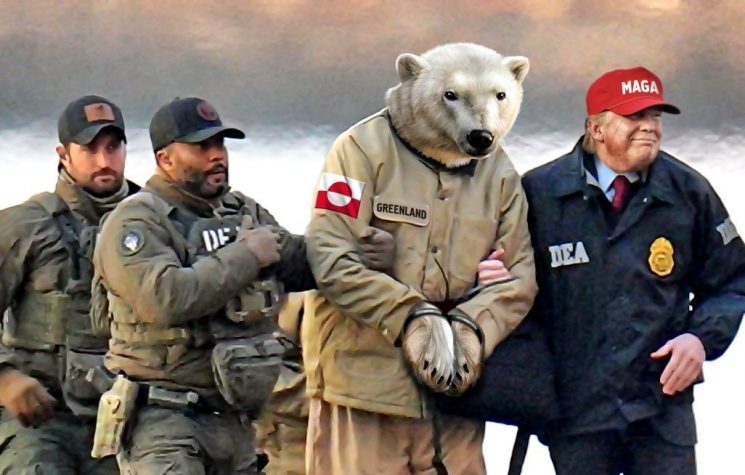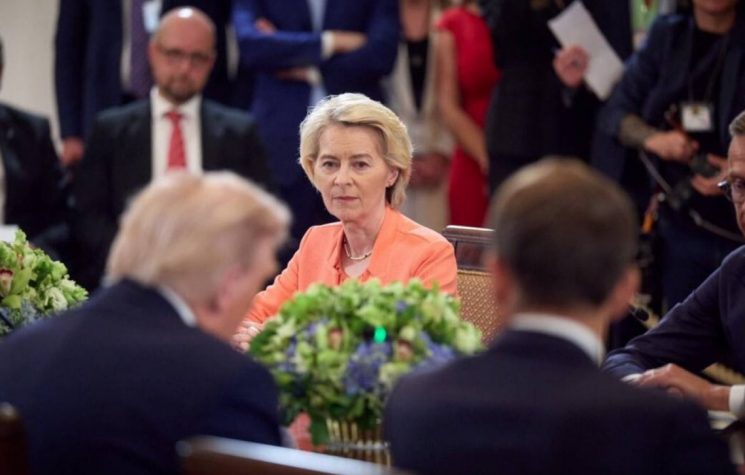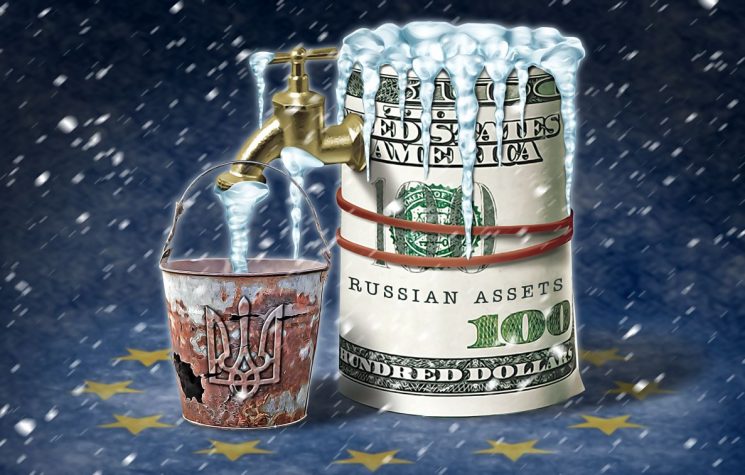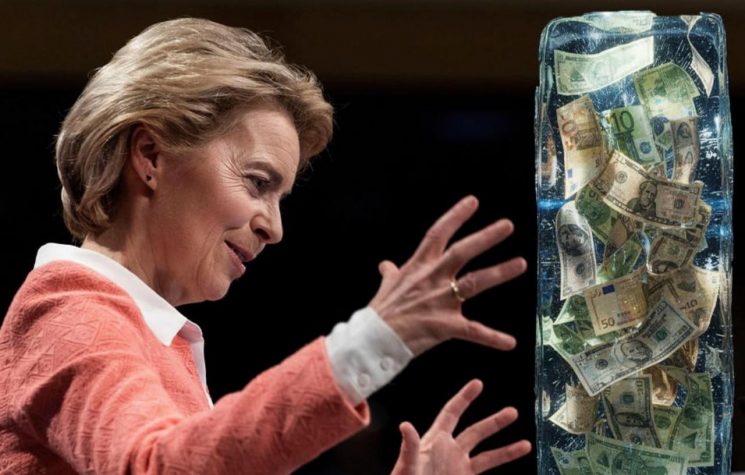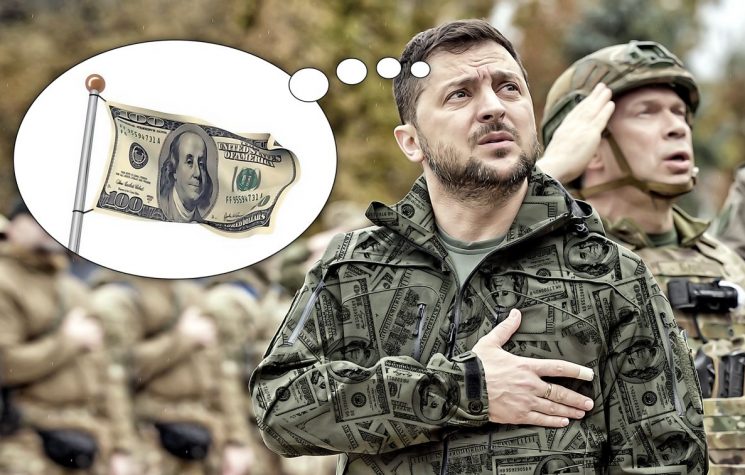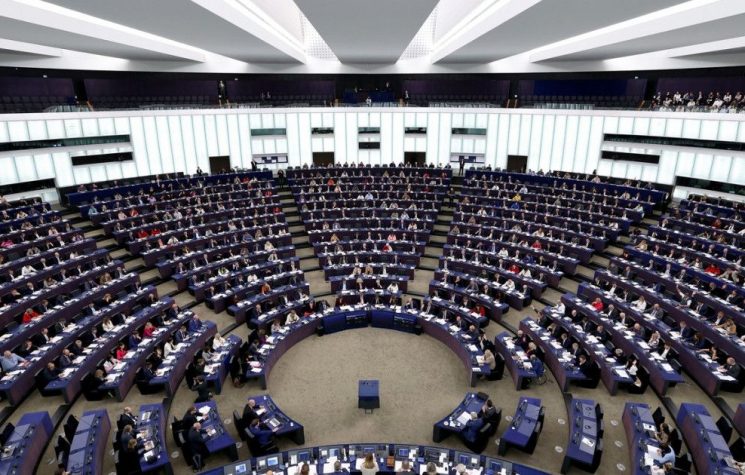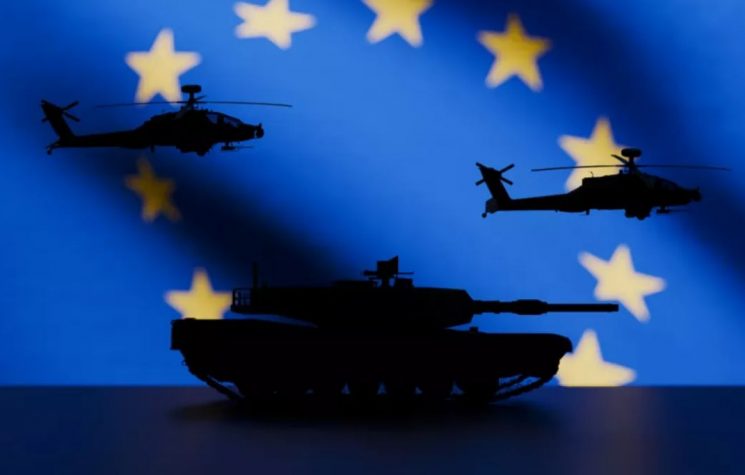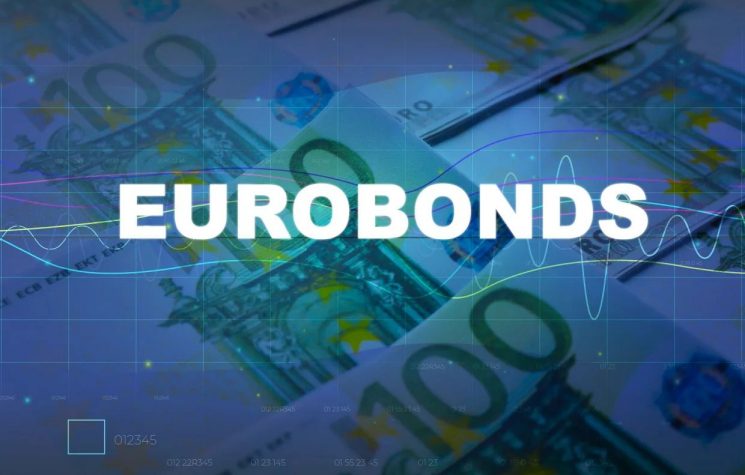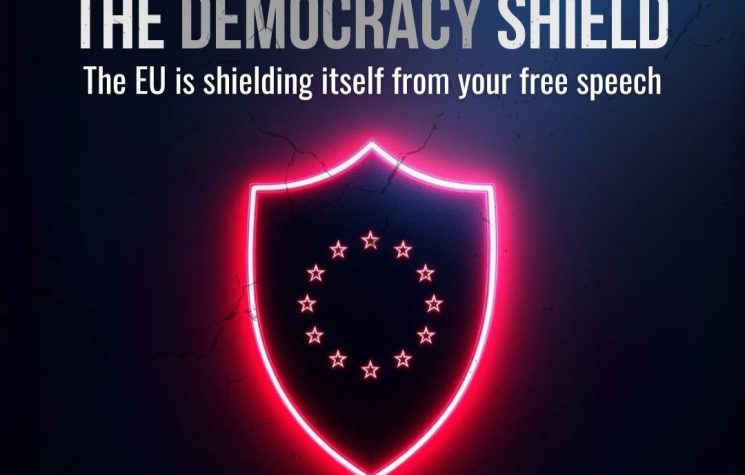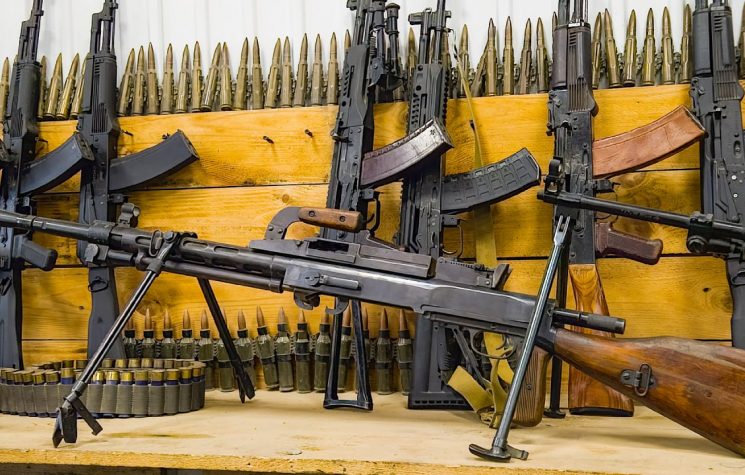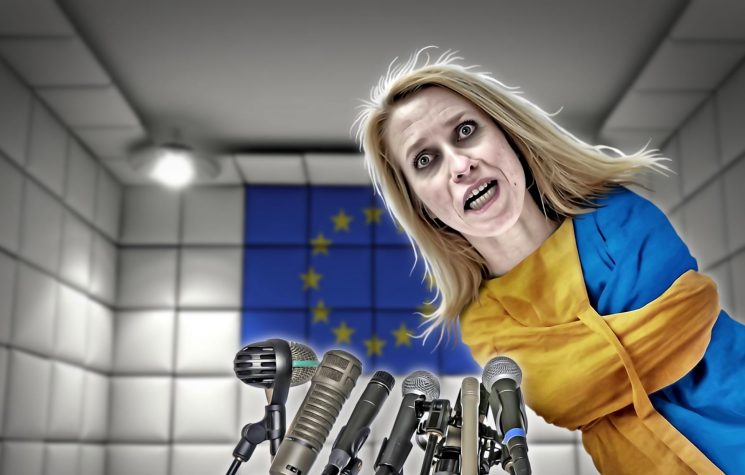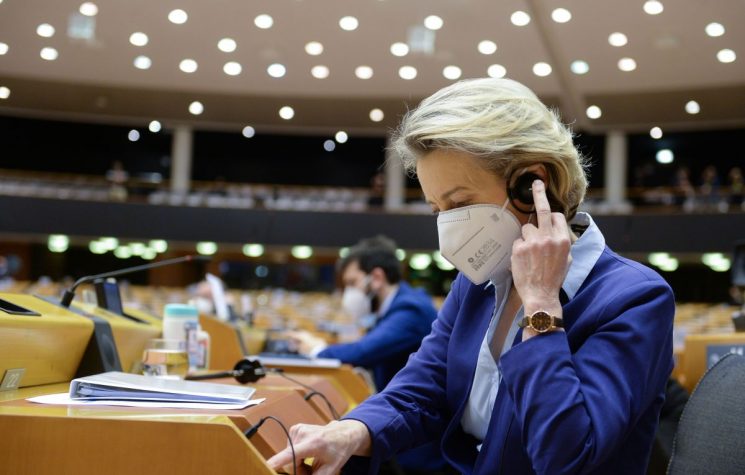A snake-like gaze about to kill and a flawless perm. This is Ursula, the most hated woman in Europe, who knows all the devil’s tricks.
Contact us: info@strategic-culture.su
Ms. Von der Leyen, please don’t be so touchy!
A snake-like gaze about to kill and a flawless perm. This is Ursula, the most hated woman in Europe, who knows all the devil’s tricks.
The obsession of the month is that Russia is supposedly ready to invade Europe, therefore we must rearm, as already announced with ReArm Europe, to launch a pre-emptive attack. All this will take a few years, but the Russians will be patient and fair, waiting to have worthy opponents.
A report by the German secret service (sic!) claims that the Russian Federation is preparing a large-scale invasion for 2030 and the Lithuanian secret service answers that the conflict in Ukraine must be prolonged to keep Russia busy.
After the meeting in London on Ukraine, the war industry sector has seen a sharp rise. On the Milan Stock Exchange, the shares of Leonardo, an Italian company specializing in defense, aerospace and security, rose by 15%, reaching a new record of 45.50 euros. In Germany, Rheinmetall – the largest German defense group – saw an increase of 18%, while in London the British giant BAE Systems, Europe’s largest arms manufacturer, gained 14%. The agreement among European leaders to strengthen military spending and defense capabilities has boosted war industry stocks on the continent. As of December 31, 2024, Leonardo had recorded a 16.2% increase in revenues, reaching 17.8 billion euros, with expansion in almost all its areas of activity.
In short, European industrialists in the strategic sector are very interested in war.
But there’s more. As Prof. Alessandro Volpi brilliantly observed, behind the maneuver are ETFs, financial products that replicate an index and are, to a large extent, created by large funds. Volpi writes that “In recent months, ETFs that have as their object indices directly linked to the arms industry have been having great success. The mechanism is simple: the large fund – for example BlackRock – creates an ETF that is linked to an index created by the same fund and, now, the big trend is to create indexes with the stocks of the main arms manufacturers, from American to European ones, which are expected to benefit from the Von der Leyen mega Plan against any invasion”.
It is no coincidence that this type of ETF is increasingly attracting the savings of Europeans, who are offered them by their managers after they have been purchased by large funds. The climate of war made the financing of rearmament “indispensable” and, to meet this need, financial instruments were created to channel collective savings, transforming everyone, more or less consciously, into financiers of the arms race. It should also be emphasized that these armaments are not exclusively destined for Europe: the main customers of the large European war industries are in fact located outside the continent, including Arab countries, Israel and other nations far from the borders of the Union.
So, European rearmament favors finance more than the European Union itself, considering that of the 457 billion euros already spent annually by the EU and the UK, more than half is used for the purchase of armaments produced in the United States. A significant detail: the Meloni government has proposed tax incentives for companies that decide to convert back to arms production. In practice, rearmament will not only burden the public accounts through increased interest on the debt, but also taxpayers, who will have to cover the costs of a further favor to Stellantis. On the other hand, with Europe under pressure, it seems almost inevitable that the Italians will have to make sacrifices to keep Elkann from getting upset and to prevent the big beneficiaries of the economic bubble from suffering too many losses.
Re-armament Ursula, a plan costing almost a thousand billion euros, will be Europe’s economic grave.
There is money for everything, except for what is really needed
The European plan “ReArm Europe”, presented by the President of the Commission Ursula von der Leyen and widely supported by the Member States, is based on a strongly militaristic vision.
The initiative is based on the assumption that Europe is about to face a sort of Third World War against Russia and its allies, without being able to count on the support of the United States. This perspective seems more like a political fantasy that lacks concrete evidence. However, the rearmament strategy requires a narrative centered on defense against a possible Russian invasion, especially after the suspension of American aid to Ukraine. This implies a radical change, according to which Europeans should allocate most of their public spending and private capital to war production.
Peace demonstrations are quickly reinterpreted within a logic in which arming oneself becomes an obligation, almost a moral duty, considered as the only effective deterrent against war. This is a disastrous historical model, which has always led to devastating conflicts. Russia is described as an absolute enemy, with whom there can be no dealings until its final defeat. Consequently, any space for mediation or dialogue is eliminated, replaced by warmongering rhetoric that demonizes the adversary. This pragmatic attitude of the so-called “armed pacifists” ignores the fact that peace is built first and foremost by eliminating the “spirit of war” from international relations.
The paradox is clear: while arming themselves, they declare that they don’t want to send even one soldier to the front, thus feeding a hypocritical attitude that is now characteristic of this historical phase. The European Commission, in fact, has decided to suspend the restrictions of the Stability Pact exclusively for military spending, elevating it to a sort of moral imperative. If countries increase their rearmament budget by at least 1.5% of their GDP, this expenditure will be exempt from budgetary constraints.
In other words, the strict European rules remain unchanged for fundamental sectors such as healthcare, already in crisis, welfare, education, ecological transition and land protection. However, when it comes to financing weapons, the restrictions disappear. The need to address the ageing of the population, to guarantee education for young people in a context of strong migration and to reduce inequalities is completely subordinated to the arms race.
Within the ReArm Europe framework, the will to create a single capital market and to incentivize the financialization of the war industry clearly emerges, also involving the European Investment Bank. The objective is to transform capitalism into a system increasingly oriented towards war.
The plan is a clear signal to the big American investment funds – BlackRock, Vanguard and State Street – and to the European ones, such as Amundi, as well as to the major banks, inviting them to focus on the arms sector. The document highlights precisely which sectors to favor: air and missile defense, artillery systems, missiles, ammunition, drones and anti-drone technologies. This trend risks generating a gigantic speculative bubble, with unpredictable consequences.
Yet Von der Leyen scares the European Parliament, because she continues not to show up for discussions, preferring only to appear for press releases and institutional appointments. The parliamentarian Roberto Vannacci (PfE), former General of the Italian Army, strongly reiterated this in the chamber, emphasizing that the real problem is not the Russians at Europe’s doorstep, but the growing poverty, the illegal immigration that brings crime, the political instability and the lack of democracy on the European continent.
Ursula’s scandals are by no means few. After the falsification of documents for Covid therapies and the Pfizergate, others have also come to light: the head of McKinsey’s German office became Von der Leyen’s assistant, while her daughter Johanna found a job at the well-known consulting firm; in 2018, the German Federal Court of Auditors questioned the procedures for the awarding of million-euro contracts by Ursula when she was German Minister of Defense; favoritism towards Markus Pieper, from the same party, appointed EU Envoy for Small and Medium-sized Enterprises; her grandfather Albrecht was a Nazi general.
All problems that the President is not dealing with, instead giving priority to the project of sending thousands of young Europeans to war.










